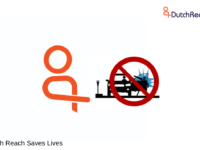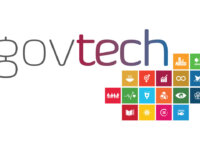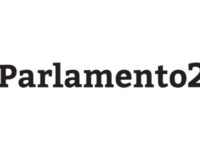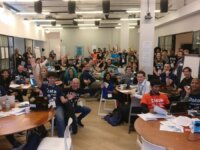The Internet's potential to enable micro, small and medium-sized enterprises (MSMEs) to conduct international commercial transactions has yet to be fully realised. With an emphasis on computational approaches to trade policy design and delivery, SUBREI has launched a pilot programme to contribute to an open repository of rules in a digital form: an 'Internet of Rules' (IoR).
The IoR will expand access to cross-border transactions and improve use by people and machines alike.
Innovation Tag: International Development
Dutch Reach Project (DRP) closes a serious gap in existing road safety efforts to prevent “dooring,” a common, feared & at times fatal crash caused when exiting motorists - using their near hand - suddenly throw open their car door into the path of a bicyclist or other vulnerable road user (VRU).
To prevent dooring, DRP promotes the Dutch Reach (DR): reaching across to the door with the far hand to open - a much safer method.
The DR project is already gaining increasing attention and being…
Case Study
Partnering for success: a regional monitoring system for social equity and inclusive development
A multistakeholder partnership created a regional indicators-based monitoring system to track pro-poor health policy change across the Southern African Development Community (SADC), a low-income region beset by socio-economic costs of a high disease burden. This stimulated SADC’s Result-Based Regional Monitoring and Evaluation initiative. Extending to all SADC priority areas, Results-Based Monitoring and Evaluation (RBME) enables real-time tracking of regional performance, documentation of…
GovTech is a Portuguese public competition that rewards innovative products and services provided by Startups and addressing at least one of the 17 Sustainable Development Goals (SDGs).
It intends to stimulate the national Startup ecosystem, by promoting a sustainable economic growth, fostering innovation and opening new economic opportunities based on the 2030 Agenda.
The use of blockchain in the voting phase opened to the public was one of the perks of this competition
ID2020 is a public-private partnership dedicated to improving lives through private and user-controlled digital identity. Today, over 1 billion people live without any form of legal ID, which can leave them economically marginalized and robbed of the opportunity for active citizenship. ID2020 is setting technical standards and launching pilot projects aimed at finding scalable digital identity solutions for world's most vulnerable populations, particularly refugees and stateless persons.
Case Study
Transforming International Remittance for Serbian Diaspora using Blockchain and Digital Identity
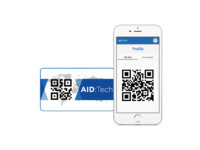
AID:Tech’s blockchain remittance solution offers affordable, transparent money transfer services to users in and outside of Serbia. Implementation partners, senders and recipients gain traceability over the remittance process with fees >3%; in line with UN SDG 10.C
The solution is developed in partnership with UNDP Serbia and part-funded by The Rockefeller Foundation. The solution launched in September 2018 with the support of the city administration of Nis, Serbia.
In response to the generalized lack of political accountability and availability of public information, this online tool provides an open and qualified access to the Spanish Parliament’s activity, related to the implementation of the Agenda 2030.It promotes a transparent and participative implementation of this agenda and allows CSOs, policy makers and the media to monitor political proposals.The Spanish Government has included Parlamento2030 as one of the tools of its 2030 Agenda National…
AELOUS is a mid-altitude airborne maritime sensor platform which significantly increases the operating surveillance range by increasing the elevation of the monitoring systems. The Aeolus platform can effectively operate at 450m above the ship – increasing the surveillance area in excess of 11 times of what can be monitored with existing solutions. The platform can be used with multiple lifting systems and can be deployed for many hours. It is being trialled by Naval and Search&Rescue…
The Office for National Statistics (ONS) Data Science Campus was set up to work at the frontier of data science and Artificial Intelligence (AI), to deliver research with impact and build capability across the UK public sector. We build skills and apply tools, methods and practices; creating insight to improve decision-making for public good. We work with UK and international partners, drawing on their expertise and resources, sharing the benefits of our education and research programs widely.
Globally, public procurement is in desperate need of reform and must embrace the tools, techniques and culture of the digital age. It’s a government’s top corruption risk as it’s where money and discretion collide.
The UK has begun to address this; GDS is leading the Global Digital Marketplace project, which is embedding user-centred, design-led, data-driven and open approaches across digital, data and technology planning, procurement, contracting and service delivery.

